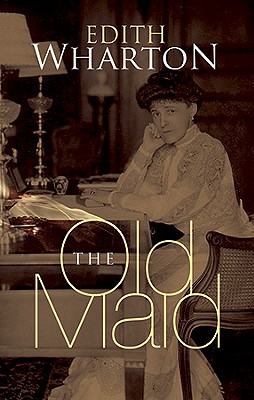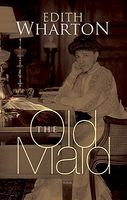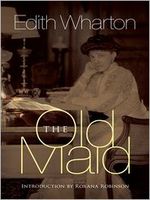- Welcome to FictionDB, Guest
- | My Account
- | Help

The Old Maid — Edith Wharton

In the old New York of the 'fifties a few families ruled, in simplicityand affluence. Of these were the Ralstons.The sturdy English and the rubicund and heavier Dutch had mingled toproduce a prosperous, prudent and yet lavish society. To do thingshandsomely had always been a fundamental principle in this cautiousworld, built up on the fortunes of bankers, India merchants,ship-builders and ship-chandlers. Those well-fed slow-moving people, whoseemed irritable and dyspeptic to European eyes only because the capricesof the climate had stripped them of superfluous flesh, and strung theirnerves a little tighter, lived in a genteel monotony of which the surfacewas never stirred by the dumb dramas now and then enacted underground.Sensitive souls in those days were like muted key-boards, on which Fateplayed without a sound.In this compact society, built of solidly welded blocks, one of thelargest areas was filled by the Ralstons and their ramifications. TheRalstons were of middle-class English stock. They had not come to theColonies to die for a creed but to live for a bank-account. The resulthad been beyond their hopes, and their religion was tinged by theirsuccess. An edulcorated Church of England which, under the conciliatoryname of the Episcopal Church of the United States of America, left outthe coarser allusions in the Marriage Service, slid over the comminatorypassages in the Athanasian Creed, and thought it more respectful to sayOur Father who than which in the Lord's Prayer, was exactly suited tothe spirit of compromise whereon the Ralstons had built themselves up.There was in all the tribe the same instinctive recoil from new religionsas from unaccounted-for people. Institutional to the core, theyrepresented the conservative element that holds new societies together asseaplants bind the seashore.Compared with the Ralstons, even such traditionalists as the Lovells, theHalseys or the Vandergraves appeared careless, indifferent to money,almost reckless in their impulses and indecisions. Old John FrederickRalston, the stout founder of the race, had perceived the difference, andemphasized it to his son, Frederick John, in whom he had scented a faintleaning toward the untried and unprofitable.You let the Lannings and the Dagonets and the Spenders take risks andfly kites. It's the county-family blood in 'em: we've nothing to do withthat. Look how they're petering out already--the men, I mean. Let yourboys marry their girls, if you like (they're wholesome and handsome);though I'd sooner see my grandsons take a Lovell or a Vandergrave, or anyof our own kind. But don't let your sons go mooning around after theiryoung fellows, horse-racing, and running down south to those d---dSprings, and gambling at New Orleans, and all the rest of it. That's howyou'll build up the family, and keep the weather out. The way we'vealways done it.Frederick John listened, obeyed, married a Halsey, and passively followedin his father's steps. He belonged to the cautious generation of New Yorkgentleman who revered Hamilton and served Jefferson, who longed to layout New York like Washington, and who laid it out instead like agridiron, lest they should be thought undemocratic by people theysecretly looked down upon. Shopkeepers to the marrow, they put in theirwindows the wares there was most demand for, keeping their privateopinions for the back-shop, where through lack of use, they graduallylost substance and colour.The fourth generation of Ralstons had nothing left in the way ofconvictions save an acute sense of honour in private and businessmatters; on the life of the community and the state they took their dailyviews from the newspapers, and the newspapers they already despised. TheRalstons had done little to shape the destiny of their country, except tofinance the Cause when it had become safe to do so. They were related tomany of the great men who had built the Republic; but no Ralston had sofar committed himself as to be great. As old John Frederick said, it wassafer to be satisfied with three per cent: they regarded heroism as aform of gambling. Yet by merely being so numerous and so similar they hadcome to have a weight in the community. People said: The Ralstons whenthey wished to invoke a precedent. This attribution of authority hadgradually convinced the third generation of its collective importance,and the fourth, to which Delia Ralston's husband belonged, had the easeand simplicity of a ruling class.
Genres
Click on any of the links above to see more books like this one.



